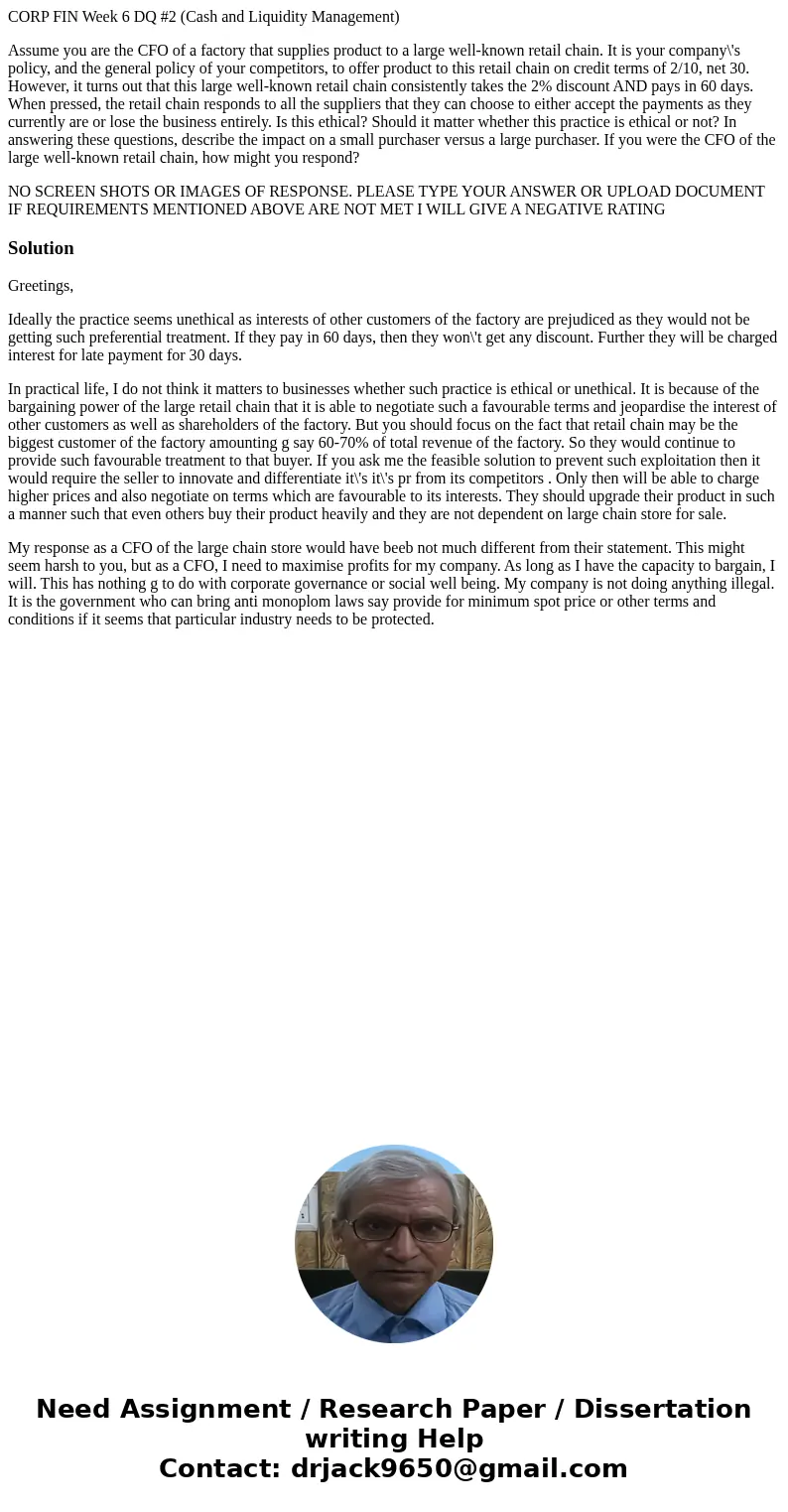CORP FIN Week 6 DQ 2 Cash and Liquidity Management Assume yo
CORP FIN Week 6 DQ #2 (Cash and Liquidity Management)
Assume you are the CFO of a factory that supplies product to a large well-known retail chain. It is your company\'s policy, and the general policy of your competitors, to offer product to this retail chain on credit terms of 2/10, net 30. However, it turns out that this large well-known retail chain consistently takes the 2% discount AND pays in 60 days. When pressed, the retail chain responds to all the suppliers that they can choose to either accept the payments as they currently are or lose the business entirely. Is this ethical? Should it matter whether this practice is ethical or not? In answering these questions, describe the impact on a small purchaser versus a large purchaser. If you were the CFO of the large well-known retail chain, how might you respond?
NO SCREEN SHOTS OR IMAGES OF RESPONSE. PLEASE TYPE YOUR ANSWER OR UPLOAD DOCUMENT IF REQUIREMENTS MENTIONED ABOVE ARE NOT MET I WILL GIVE A NEGATIVE RATING
Solution
Greetings,
Ideally the practice seems unethical as interests of other customers of the factory are prejudiced as they would not be getting such preferential treatment. If they pay in 60 days, then they won\'t get any discount. Further they will be charged interest for late payment for 30 days.
In practical life, I do not think it matters to businesses whether such practice is ethical or unethical. It is because of the bargaining power of the large retail chain that it is able to negotiate such a favourable terms and jeopardise the interest of other customers as well as shareholders of the factory. But you should focus on the fact that retail chain may be the biggest customer of the factory amounting g say 60-70% of total revenue of the factory. So they would continue to provide such favourable treatment to that buyer. If you ask me the feasible solution to prevent such exploitation then it would require the seller to innovate and differentiate it\'s it\'s pr from its competitors . Only then will be able to charge higher prices and also negotiate on terms which are favourable to its interests. They should upgrade their product in such a manner such that even others buy their product heavily and they are not dependent on large chain store for sale.
My response as a CFO of the large chain store would have beeb not much different from their statement. This might seem harsh to you, but as a CFO, I need to maximise profits for my company. As long as I have the capacity to bargain, I will. This has nothing g to do with corporate governance or social well being. My company is not doing anything illegal. It is the government who can bring anti monoplom laws say provide for minimum spot price or other terms and conditions if it seems that particular industry needs to be protected.

 Homework Sourse
Homework Sourse